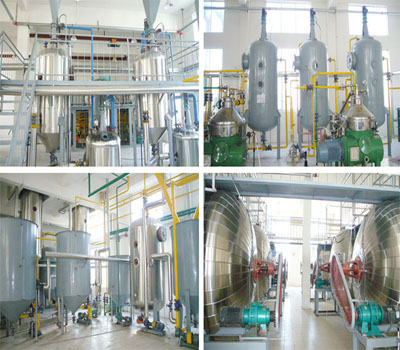Edible oil refinery plays an important role in the food industry
Edible oil refinery plays an important role in the food industry. Edible oil is an indispensable part of people’s daily diet, and its quality directly affects the taste and safety of food. The responsibility of the refinery is to convert raw oil into high-quality edible oil through a series of complex technological processes to ensure that it meets food safety standards.

First, the refinery preliminarily treated the raw oil to remove impurities. This includes degumming, deacidification, decoloration and other steps, aiming at removing insoluble impurities and free fatty acids in oil and improving the stability and purity of oil products. Through these steps, the edible oil is not only clearer and more transparent in appearance, but also difficult to be oxidized and deteriorated during storage.
Second, the refinery also removes the peculiar smell and volatile components in the oil through deodorization process. This step is very important to improve the sensory quality of edible oil, so that it will not affect the original flavor of food during cooking. In addition, deodorization can further remove potential harmful substances and ensure the safety of edible oil.
Modern equipment and technology have played an important role in the whole refining process. Automated production lines and advanced testing instruments can improve production efficiency and ensure the quality stability of each batch of products. Refineries also need to strictly abide by national food safety regulations and pass international certifications such as ISO to enhance consumers’ trust in products.
In a word, the edible oil refinery is not only an indispensable part of the food supply chain, but also an important guarantee to ensure food safety and improve the quality of life. With the continuous improvement of consumers’ requirements for health and quality, refineries will continue to innovate and improve their processes to meet market demand.
